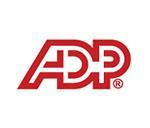
Workplace compliance and data management are not just about meeting regulatory standards—they are crucial for protecting your organization’s data and reputation. For businesses, especially those managing deskless or mobile teams, securely collecting and exchanging data is essential. Yet, many companies still rely on inefficient or insecure data systems, leaving them vulnerable to significant risks.
Failing to implement secure methods for data collection and exchange can jeopardize workplace compliance and threaten the integrity of your workforce’s digital information.
Why Workplace Compliance Matters
Workplace compliance refers to adhering to the laws, regulations, and industry standards that govern an organization’s operations. This includes everything from employee safety standards to privacy regulations, such as the General Data Protection Regulation (GDPR) and the Health Insurance Portability and Accountability Act (HIPAA). Non-compliance with these standards can result in costly fines, damaged reputations, and even legal action.
For companies handling sensitive data—such as healthcare providers, financial institutions, and organizations with mobile workforces—compliance involves strict rules about how data is collected, stored, and shared. When these processes are compromised, the consequences can be severe.
Risks of Not Securing Data Collection and Exchange
Without secure data management systems, businesses expose themselves to several risks, including:
- Data Breaches
One of the most immediate risks of insecure data practices is the potential for a data breach. The risk increases significantly when businesses rely on unsecured communication tools or manual data entry methods prone to errors and vulnerabilities.
Mobile workforces are particularly vulnerable, as they often collect and exchange data on the go. Without proper encryption or secure access points, this data can be intercepted, stolen, or altered by malicious actors, leading to financial loss and reputational damage.
- Non-Compliance with Regulatory Standards
Many industries have strict regulations regarding data handling. Insecure data collection and sharing practices can lead to non-compliance, which brings severe financial and reputational penalties. Beyond fines, non-compliance can result in audits, operational disruptions, and a loss of customer trust, all of which are difficult to recover from.
- Loss of Intellectual Property
A lesser-known risk is the loss of intellectual property (IP). Proprietary information, such as product designs, algorithms, or strategic plans, can be leaked or stolen if not properly secured. Losing valuable IP can have catastrophic effects on a company’s competitive edge and market share.
- Inaccurate or Incomplete Data Collection
Insecure or outdated data collection methods increase the likelihood of errors, which can undermine decision-making and compliance reporting. In industries where precision is critical, such as healthcare or logistics, inaccurate data can lead to legal repercussions and flawed business strategies.
How to Avoid These Risks
To avoid these risks, invest in secure, modern data collection and exchange systems that comply with regulatory standards. Here are some steps to take:
- Implement Secure Software Solutions
Choose software solutions that streamline and secure your data collection processes. Look for platforms with end-to-end encryption, secure cloud storage, and user authentication protocols to ensure only authorized personnel can access sensitive information.
- Regular Compliance Audits
Conduct regular compliance audits to ensure your data management processes meet regulatory standards. Being proactive can help identify vulnerabilities before they become major issues.
- Employee Training
Human error is one of the most common causes of data breaches. Regularly training employees on data security best practices—such as recognizing phishing attacks and using strong passwords—can significantly reduce the risk of non-compliance or data leaks.
- Utilize Secure Communication Channels
Use secure communication tools for exchanging sensitive information. Avoid unsecured methods like email or text messaging for transmitting confidential data. Instead, adopt encrypted platforms designed for secure business communication.
Protecting Data with TeamWherx®
For organizations with mobile workforces, secure data collection and exchange cannot be overlooked. The risks—ranging from data breaches and non-compliance to intellectual property loss—are too high.
Partnering with a comprehensive mobile workforce management solution like TeamWherx® offers the security, flexibility, and peace of mind necessary to protect your data. By investing in secure software, conducting regular audits, and training your workforce, you can mitigate risks and safeguard your organization against financial and reputational damage.
Learn more about TeamWherx by requesting a free demo today and take the first step towards achieving flexibility and stability in your mobile workforce.
Share this post:
About the author : Actsoft Team
Actsoft’s team of industry experts have their fingers on the business world’s pulse. It’s our mission to deliver the latest news to keep you and your leaders on top of the latest trends, further helping you to excel and exceed your goals.















 Encore & Geotab Drive
Encore & Geotab Drive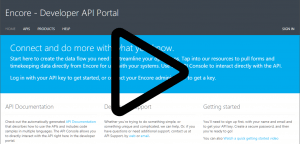
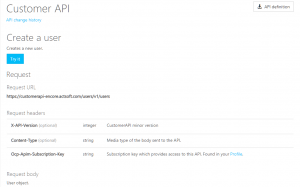
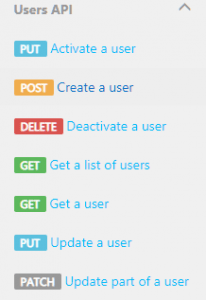

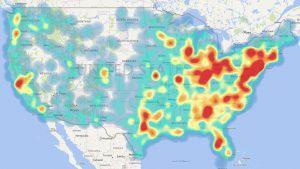
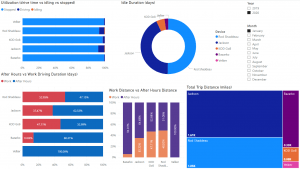
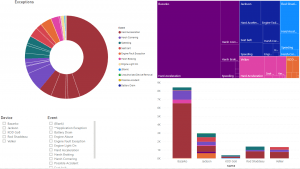
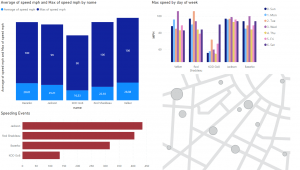
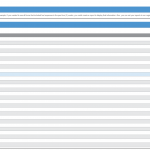
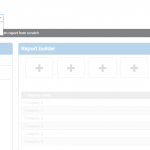
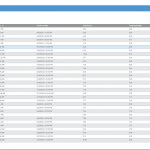
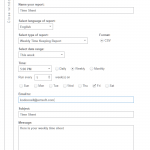




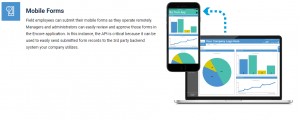
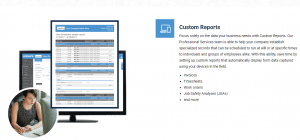
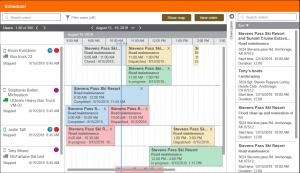


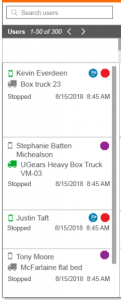
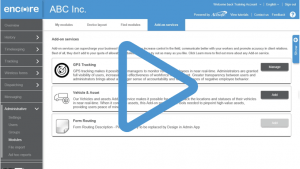
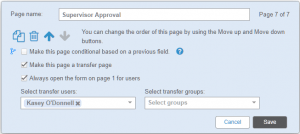
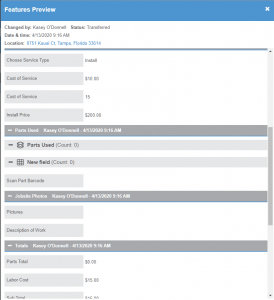
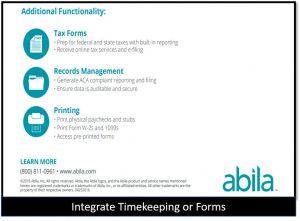
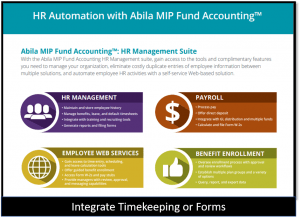
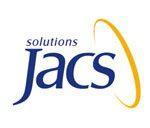
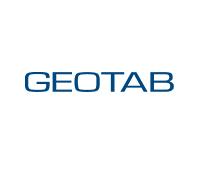 Gain even greater insight into the daily activities of your fleet using the combination of Geotab and Actsoft. Geotab devices provide detailed data collection and seamless integration with our solutions; learn more about the ways your vehicles are being used daily with the power of this tandem.
Gain even greater insight into the daily activities of your fleet using the combination of Geotab and Actsoft. Geotab devices provide detailed data collection and seamless integration with our solutions; learn more about the ways your vehicles are being used daily with the power of this tandem.

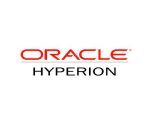

 Actsoft partnered with Odin to provide our solutions overseas, through payment processing integrations. Odin helps us support user management for our software; customers can also purchase our products through Odin’s billing platform.
Actsoft partnered with Odin to provide our solutions overseas, through payment processing integrations. Odin helps us support user management for our software; customers can also purchase our products through Odin’s billing platform.

 VisTracks powers our Electronic Logging Device (ELD) solution, which enables transportation businesses to easily automate their hours of service logs, remain in governmental compliance, and reduce their potential to incur costly fines.
VisTracks powers our Electronic Logging Device (ELD) solution, which enables transportation businesses to easily automate their hours of service logs, remain in governmental compliance, and reduce their potential to incur costly fines. Integration between Actsoft solutions and BeWhere’s software products is available. Take your team’s asset tracking, cellular data connectivity, and field insight a step further with effective, cross-application compatibility.
Integration between Actsoft solutions and BeWhere’s software products is available. Take your team’s asset tracking, cellular data connectivity, and field insight a step further with effective, cross-application compatibility.
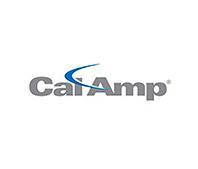 CalAmp tracking devices for vehicles and assets alike are compatible with Actsoft solutions, making it easy for you to efficiently monitor your equipment and fleet cars. Help your team enhance accountability, safety, and savings through a combination of easily installed hardware and intuitive software.
CalAmp tracking devices for vehicles and assets alike are compatible with Actsoft solutions, making it easy for you to efficiently monitor your equipment and fleet cars. Help your team enhance accountability, safety, and savings through a combination of easily installed hardware and intuitive software.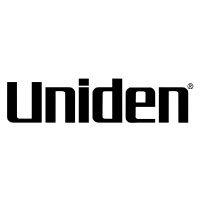 Our partnership with Uniden is ideal for companies looking to gain advanced diagnostics on their fleets. Uniden’s extensive product listing of car electronics like radios, dash cams, radar detectors, and in-vehicle communicators work in concert with Actsoft’s solutions to better connect your vehicles to the company headquarters.
Our partnership with Uniden is ideal for companies looking to gain advanced diagnostics on their fleets. Uniden’s extensive product listing of car electronics like radios, dash cams, radar detectors, and in-vehicle communicators work in concert with Actsoft’s solutions to better connect your vehicles to the company headquarters.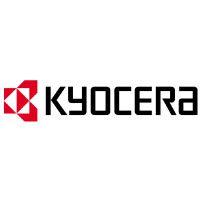 Kyocera offers a wide range of mobile devices, ranging in design from traditional phones to ultra-durable handset technology. Actsoft is able to equip organizations in a variety of different industries with solutions for improved business, while Kyocera supplies the technology they can flawlessly operate on.
Kyocera offers a wide range of mobile devices, ranging in design from traditional phones to ultra-durable handset technology. Actsoft is able to equip organizations in a variety of different industries with solutions for improved business, while Kyocera supplies the technology they can flawlessly operate on.

 Our software is the perfect complement to Apple’s user-friendly technology. Equip your workforce with the devices and solutions it needs for optimized productivity during daily operations with Apple and Actsoft.
Our software is the perfect complement to Apple’s user-friendly technology. Equip your workforce with the devices and solutions it needs for optimized productivity during daily operations with Apple and Actsoft.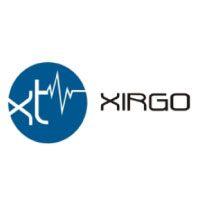
 Actsoft and Sanyo teamed up to merge intuitive business management software with the technology of today. This partnership allows us to provide you with all the tools your team needs for improved workflows, better coordination, and optimized productivity.
Actsoft and Sanyo teamed up to merge intuitive business management software with the technology of today. This partnership allows us to provide you with all the tools your team needs for improved workflows, better coordination, and optimized productivity.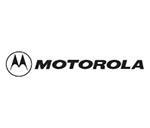 Motorola’s mobile technology works in tandem with our solutions to provide extra versatility to your business practices. Coupled with our software’s features, Motorola’s reliable devices make connecting your workforce simpler than ever to do.
Motorola’s mobile technology works in tandem with our solutions to provide extra versatility to your business practices. Coupled with our software’s features, Motorola’s reliable devices make connecting your workforce simpler than ever to do. We’re able to bundle certain solutions of ours (including our Electronic Visit Verification options) with Samsung devices to help your team achieve as much functionality as possible, while keeping rates affordable. Use these combinations for accurate recordkeeping, improved communication, and smarter data collection in the field.
We’re able to bundle certain solutions of ours (including our Electronic Visit Verification options) with Samsung devices to help your team achieve as much functionality as possible, while keeping rates affordable. Use these combinations for accurate recordkeeping, improved communication, and smarter data collection in the field.